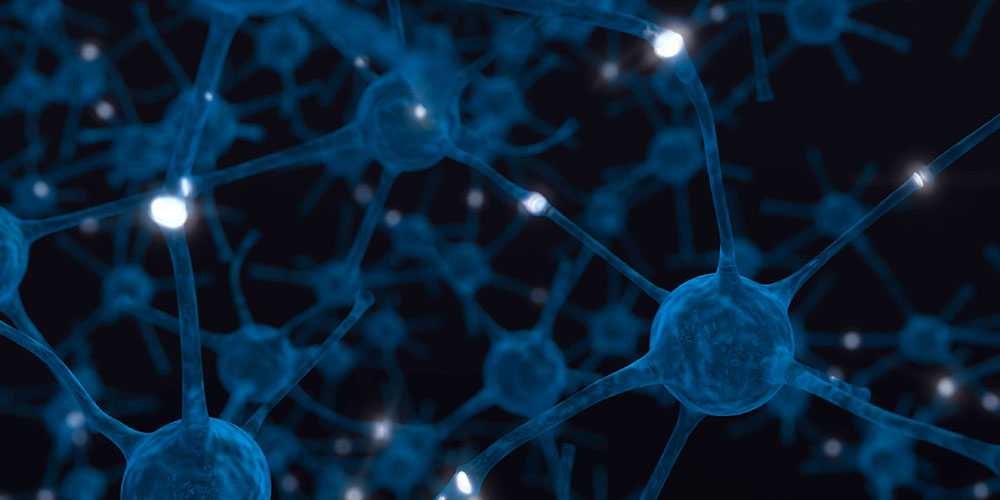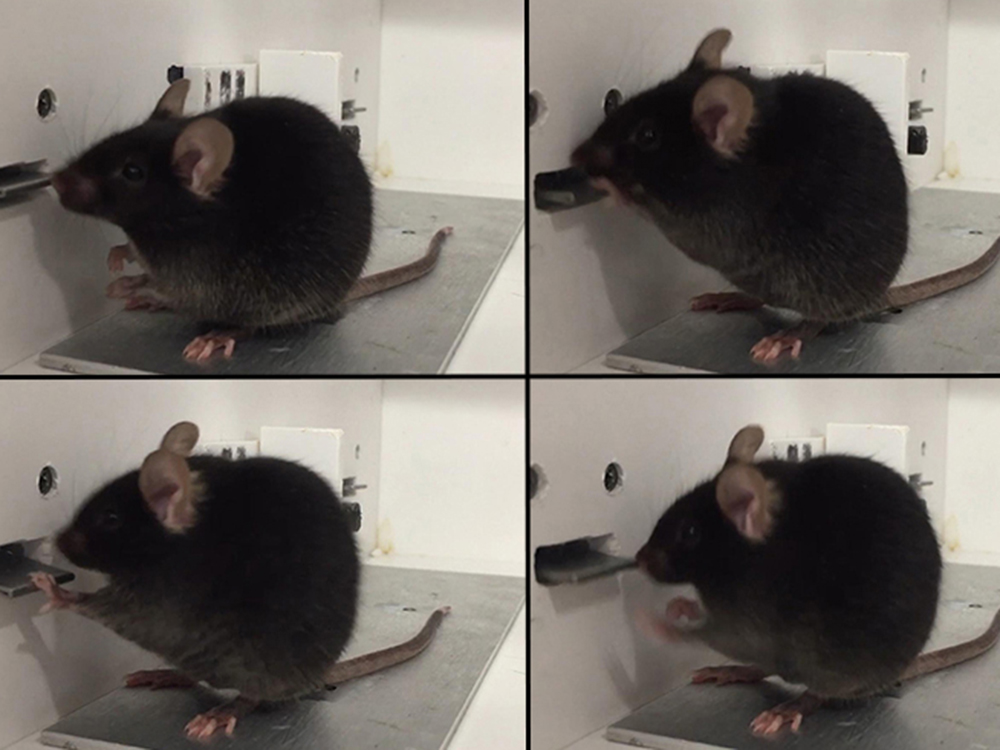The neuronal mechanism behind motivation
Our actions are motivated by the goals we want to achieve. However, little is known about the mechanism in our brains that allow us to make the right decisions to reach our goals. Researchers at the Friedrich Miescher Institute for Biomedical Research (FMI) and the University of Basel now identified the sequence of events taking place in a mouse brain when the mouse behaves in a certain way to obtain a reward. And how it can adapt its behavior when the reward is not the one expected.
07 January 2022
If you go to a bakery every day solely to buy a specific bread, you will stop going to that bakery once you learnt that it doesn’t sell your favorite bread anymore. This is called goal-directed behavior, and the amygdala – the small almond-shape emotion processing center in the brain – is known to be involved in controlling that.
So far, the role of the amygdala has been investigated in mice in so-called cue-directed behavior, when a visual or auditory cue (e.g. a sound) is the signal that something is going to happen (e.g. the mouse will receive some sugar) and make the mouse behave in a certain way (e.g. it will go to the place in the cage where it receives the sugar). How the amygdala is involved in goal-directed behavior however – when mice do something without cues, at their own pace to achieve a goal – has been unclear.
In a study published in Science, Julien Courtin, a postdoc in the group of Professor Andreas Lüthi, trained mice in a goal-directed task: Over the course of several days, the animals learnt that when they pushed one lever, they received a drop of sucrose, and when they pushed another lever, they received a drop of milk.
Once the animals were experts in conducting these tasks, Courtin adapted the experimental set-up: He gave the mice the reward without having them press the lever; or he had them press the lever without reward; or he allowed the mice to stuff themselves with one of the rewards. During all these various actions performed by the mice, Courtin recorded their brain activity in the amygdala and, together with Yael Bitterman, a computational neuroscientist in the Lüthi lab, developed new analytical methods to decipher the underlying neuronal code.
A prediction machine
Courtin and Bitterman, the co-first authors of the study, identified the distinct populations of neurons in the amygdala involved in the various aspects of this goal-directed behavior. For example, they showed that a certain population of neurons were active when the mouse pressed lever 1 to expect reward 1. But once lever 1 was not associated with the reward anymore, this population of neurons lost its activity. “The population of neurons was not active because the mouse pressed the lever, but because the lever was associated with the expectation of the reward,” says Courtin. “As the mouse learnt not to expect a reward anymore, this population disappeared,” he adds.
Most remarkably, the results show that not only the type of reward, its size and the likelihood that it will happen, is represented in the amygdala, but also its value – a flexible parameter that depends on many factors (e.g. how hungry the mouse is). The amygdala ships all this information to other brain regions, which then use it to make appropriate decisions and adapt the behavior according to the possible rewards.
Andreas Lüthi explains: “Simply by looking at the amygdala, we were able to get a detailed picture of the reward that the mouse expected, and what it needed to do to get it. The amygdala makes predictions – if I do that, I will get that – and it’s adapting these predictions according to changes. There is no other brain structure that can so precisely predict what is going to happen.”
Human relevance
Courtin’s and Bitterman’s findings can easily be related to human behavior. Every day we perform hundreds of actions with certain expectations in mind. In case the expectations are not met, we adapt our behavior – we do something differently, or we do it less or more often. The same neuronal mechanisms in the amygdala that this study highlighted in mice are underlying these behaviors of ours.
It is not difficult to understand why this research is so important. Being able to adapt our behaviors based on predictions is essential for us humans, but sometimes these processes are negatively affected, for example in addiction, depression, obsessive-compulsory disorder (OCD) or Parkinson’s disease. “In such conditions, the behavioral sequence in the brain that we elucidated may not be regulated properly,” says Courtin. “This could become an avenue for clinical research, the challenge being: How can we interfere with a process that went awry in the brain when it is happening in such a short period of time.”
This news is based on a press release issued by the FMI.
Original publication
J. Courtin, Y. Bitterman, S. Müller, J. Hinz, K. M. Hagihara, C. Müller & A. Lüthi.
A neuronal mechanism for motivational control of behavior.
Science (2022), doi: 10.1126/science.abg7277




